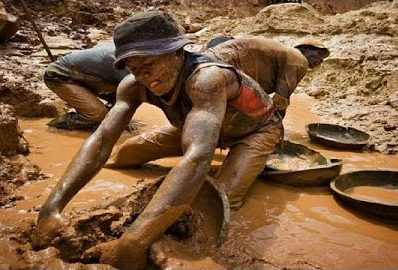No Change In Africa 400 Years On?
- Home
- No Change In Africa 400 Years On?

No Change In Africa 400 Years On?

This year, Ghana is leading the world to remember the 400th anniversary of what history describes as the Trans Atlantic Slave Trade.
Known as the Year of Return, the year-long programme peaks in this month of August.
Coincidentally, the world body, through its agency, UNESCO, has designated August 23 as International Day for the Remembrance of the Slave Trade and its Abolition.
It is on record that some 12 million Africans were taken away. But it is also on record that approximately up to 2.4 million Africans died during their transport to the New World. Thousands died resisting capture; many more starved themselves to death rather than endure the humiliation.
Don’t mind them when they tell us that its abolition was actuated by morality. That is an afterthought described by some as an “ideological apparatus to eliminate the sentiment of guilt in western society”.
By the time of its abolition in 1833, slavery had lost its profitability and it was in Britain’s economic interest to ban it.
Karl Marx, in his ‘Das Kapital’, wrote that “…the turning of Africa into a warren for the commercial hunting of black-skins, signalled the rosy dawn of the era of capitalist production”. The trade was so profitable in Portugal, Britain, France, Spain and the Netherlands that “the top merchants abandoned traditional industries in order to pursue slaving”.
As the world uses platforms such as Emancipation Day (August 1) and the Ghana-led Year of Return, and as we in Africa, vow “Never Again!”, many are the cynics who do not seem to be impressed by these avowals and holy speeches.
I have no quarrel with those Africans who seek reparations from Europe and America, but the more I familiarise myself with the literature, the more convinced I become that Africans, especially the chiefs, might find it difficult to convince anybody that could lead the march to demand reparations from Europe and America.
This is because Africans played a direct role in the slave trade, selling their captives or prisoners of war to European buyers. Although Europeans were the market for slaves, Europeans rarely entered the interior of Africa due to fear of disease and fierce African resistance
History records that when in 1807, the UK Parliament passed the Bill that abolished the trading of slaves, the King of Bonny (now in Nigeria) was horrified at the conclusion of the practice, saying:
“We think this trade must go on. That is the verdict of our oracle and the priests. They say that your country, however great, can never stop a trade ordained by God himself”.
A similar protest went from a powerful king in what is present day Ghana against the abolition because, as he boasted, he had thousands of them.
Historian Walter Rodney estimates that by 1770, the King of Dahomey was earning an estimated £250,000 annually by selling captive African soldiers and enslaved people to the European slave traders.
As an African, my anger is somewhat assuaged by the torrents of apologies pouring in from guilty parties.
In 1999, President Mathieu Kerekou of Benin issued a national apology for the role Africans played in the Atlantic slave trade. In 2009, the Civil Rights Congress of Nigeria wrote an open letter to all African chieftains asking them to apologise. “We cannot continue to blame the white men, as Africans, particularly the traditional rulers are not blameless,” it reasoned.
Other apologies have come from the governments of the United Kingdom and the USA.
Question is: What about us in Africa. Have we changed?
Our greed has not abated. During Abacha’s regime in Nigeria, he and his family reportedly stole a total of £5 billion from the country’s coffers.
In March 2014, the United States Department of Justice revealed that it had frozen more than $458 million believed to have been illegally obtained by Abacha and other corrupt officials. At the height of his reign, Zaire’s Mobutu Sese Seko’s wealth was more than that of his country. In the name of “infrastructural development”, our leaders are bleeding our economy and enslaving us, now to China.
Source: graphic.com.gh
Classic Ghana
Classic Ghana brings you into a fun world of arts, entertainment, fashion, beauty, photography, culture and all things in between. Let’s explore these together!


